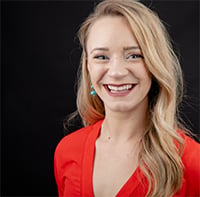Pulsara Around the World - February 2026
January Recap The start of 2026 was on the slow side for our events schedule, with our team heading to the Florida Fire & EMS Conference, the...
1 min read
 Hannah Ostrem
:
Jan 22, 2016
Hannah Ostrem
:
Jan 22, 2016
![Stroke Patients Walk Away Deficit-Free After Innovative Treatment [News Story]](http://www.pulsara.com/hubfs/Screen_Shot_2016-01-21_at_1.05.32_PM.png)
Since its inception, Pulsara has been reducing case times for STEMI and stroke patients, ultimately resulting in shorter hospital stays, fewer deficits after treatment, and major cost and resource savings for the facilities we serve. And while all of the hospital and patient benefits we see are exciting, it is especially inspiring when patients walk away 100% deficit free after a stroke or STEMI.
Paramedics of the Davie Fire Rescue Department as well as the care teams of Memorial Healthcare System in South Florida use Pulsara to reduce the chaos of care coordination and ensure better outcomes for their patients. Recently, the stroke team treated a 46-year-old woman who had suffered a stroke as a result of an ICA terminus clot and, with the help of Pulsara, the team was able to complete her case in just 39 minutes, sparing her any deficits.
Dr. Peter Antevy is the Medical Director of Davie Fire Rescue. "This case really showed the power behind paramedics out in the field being able to activate the cath lab for patients - doctors at the hospital are now able to evaluate the patient before she even arrives AND open up the angiography suite simultaneously," Antevy said. According to Dr. Antevy, in this particular case, that ability saved the patient close to an hour of wait time that otherwise would have been spent activating and preparing the cath lab.
"Pulsara is not just an app, it's a logistical enhancement of a very difficult process. Now, instead of delivering care in a series of small, time-consuming steps, it becomes a fluid, parallel process, eliminating costly time drains and providing incredible patient outcomes," Antevy said.
The local ABC News department ran video of the care team using Pulsara's Stop Stroke app during another case, and interviewed both the patient, Tony, and Dr. Brijesh Mehta, a Neurointerventional Surgeon at Memorial Regional Hospital. Dr. Mehta told reporters "[Pulsara] allows us to activate multiple team members, so that when the patient arrives in the ambulance we are all equipped and ready to treat the patient."
And ready they were! Tony was also able to walk away with zero deficits after his major stroke. Tony told the news reporters "I feel like a million bucks ... I feel great!" And with outcomes like that, so do we.
Click the thumbnail above to view the news coverage.

January Recap The start of 2026 was on the slow side for our events schedule, with our team heading to the Florida Fire & EMS Conference, the...

Recent research shows how Pulsara was successfully leveraged to connect more than 6,000 COVID-19 patients to monoclonal antibody infusion centers via...

At Pulsara, it's our privilege to help serve the people who serve people, and we're always excited to see what they're up to. From large-scale...